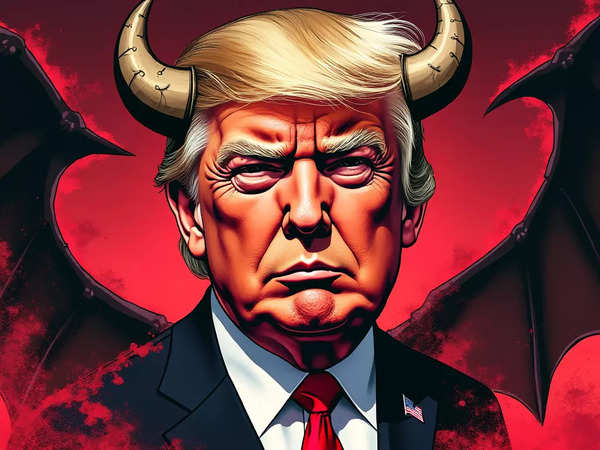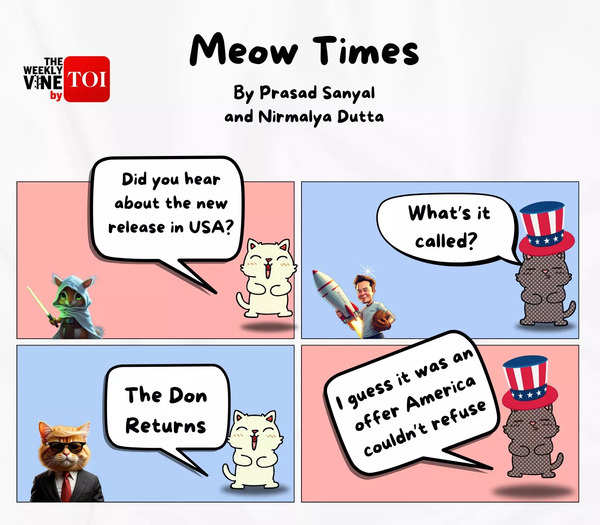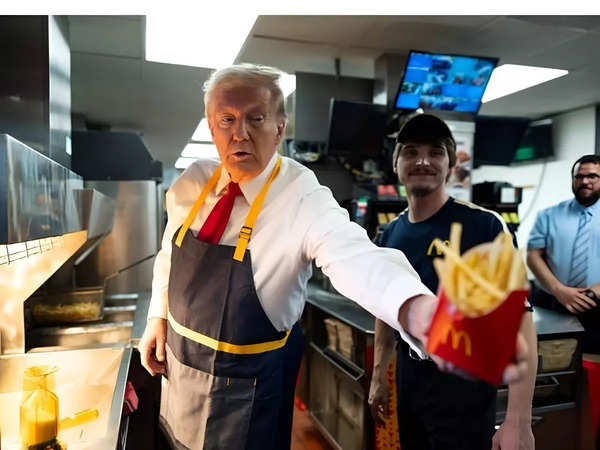The following article was originally published on LinkedIn as a special edition of The Weekly Vine.
Hello and welcome to a special edition of the Weekly Vine. Now, depending on your worldview, it’s a dark day for the world’s oldest oil-based oligarchy that chose to bring back a convicted felon to the White House, or it’s a triumph of good over evil, as God’s chosen warrior defeated the deep state after making an offer America couldn’t refuse. You are either deeply upset about the rising cis-hetero-patriarchy or thrilled you don’t have to announce your pronouns again. Now, there has been a lot of coverage, but let yours truly explain, in very simple terms, without the highfalutin polysyllabic words that one often employs, why Trump won.
1) Trump Derangement Syndrome

Since Donald Trump decided to run for President, mainstream media has suffered from Trump Derangement Syndrome. Yet, thundering follows the laws of diminishing returns, and viewers started noticing the dissonance between reality and the MSM coverage of Trump. At some point, Americans – much like humans in the Matrix – just unplugged from the media reality.

2) Red-pilled New Media
With mainstream media failing to honestly cover Trump, many Americans switched to new media like Elon Musk’s X or podcasts like the one run by Joe Rogan. When they saw Trump on these channels, they didn’t really see a fascist but rather a slightly kooky uncle, present in every family. Elon Musk’s X also played a crucial role, becoming a channel for MAGA supporters to point out mainstream media’s mendacity in real time.
3) Trump’s Reverse Swing
In America, elections are virtually decided by seven swing states, some of which are part of the so-called Blue Wall. Trump’s messaging worked for different voters. In 2020, Joe Biden had won six of the seven swing states, but Trump managed to flip all of them with common-sense messaging on immigration, war, the economy, taxes, and being tough on crime. His message reached even minority voters like Arab-Americans, Indian-Americans, Hispanics, and Blacks, traditional Democratic voters who backed Trump.
4) Reality Star

On the Joe Rogan podcast, Donald Trump spilled the tea: “I did McDonald’s last week, and I actually got a call from Sundar. He said, ‘This is the biggest thing we’ve had in years!’” Now that’s some fast-food fame worth celebrating!
Despite being born with a silver spoon, Donald Trump is exceptionally good at looking like the everyman. His antics – whether making fries at McDonald’s, driving a garbage truck, or swaying to YMCA – make him look like a regular person as opposed to a politician trying too hard to make a point.
5) Democratic Disillusionment
The Dems ceased to be a party of common sense. It’s a no-brainer for regular people that grown men – irrespective of how they identify – shouldn’t share bathrooms with little girls. That men shouldn’t participate in women’s sports. That illegal immigrants shouldn’t get a head start over legal migrants who have waited in line for decades for American citizenship. The Republicans became the party of common sense.
6) Team Trump
A lot of people didn’t just vote for Trump but the team he assembled. RFK is Kennedy royalty. JD Vance is an exceptional debater who can dance with the liberal media and make them eat their own words. Vivek Ramaswamy is a Tiger Mom’s dream child who can articulate the MAGA vision in layman’s terms. Tulsi Gabbard, a former Democrat, is an exceptionally gifted speaker. And Musk is one of the sharpest people alive, who has changed numerous tech industries. Combined, they promised a vision of America that is more hopeful than doom and gloom.
7) It’s the economy, stupid

In 1992, Bill Clinton’s strategist used the term to explain why most people vote the way they do: “It’s the economy, stupid.” Harris did exceptionally well with wealthy voters – people earning more than $100,000 per year – but for everyone else, Trump was the better choice, as his economic vision resonated with Americans.
8) The Elon Musk effect

Musk bet the farm on Donald Trump and won. His highly expensive purchase of X helped counter mainstream media’s negative Trump coverage. Musk also made it cool for Silicon Valley to support Trump, and he was instrumental in ensuring JD Vance would be Trump’s VP. Vance will be the first tech bro in the White House. Musk promised that Trump would make America great again, and the people believed him, given Musk’s role in shaping numerous industries, including fintech, EVs, and space tech.
9) Doom Loop and DEI
In 2020, Harris’ presidential campaign failed to win a single vote. She became the VP because she complemented Biden. Harris became stuck in a ‘doom loop’: the more interviews she gave, the lower her ratings dropped. By the end of it, Harris looked like what her opponents called her: a Diversity, Equity, and Inclusivity (DEI) candidate, picked for her gender and race, rather than her skillset. She couldn’t answer one basic question that was put to her again and again: How would she be different from Biden? That the campaign hadn’t crafted a simple answer to this question just buttressed the point that Harris wasn’t equipped to deal with the Presidency.
10) Gender Gamble
The Trump campaign made several big bets. First, it targeted alienated young men through podcasts, apparently a strategy crafted with his 18-year-old son Barron. It decided to leave abortion to the states, with Trump’s logic being: “Without abortion, women love me.” And thirdly, they ran anti-trans ads targeting progressive stances with the simple message: “Kamala’s for they/them, Trump is for you.”
